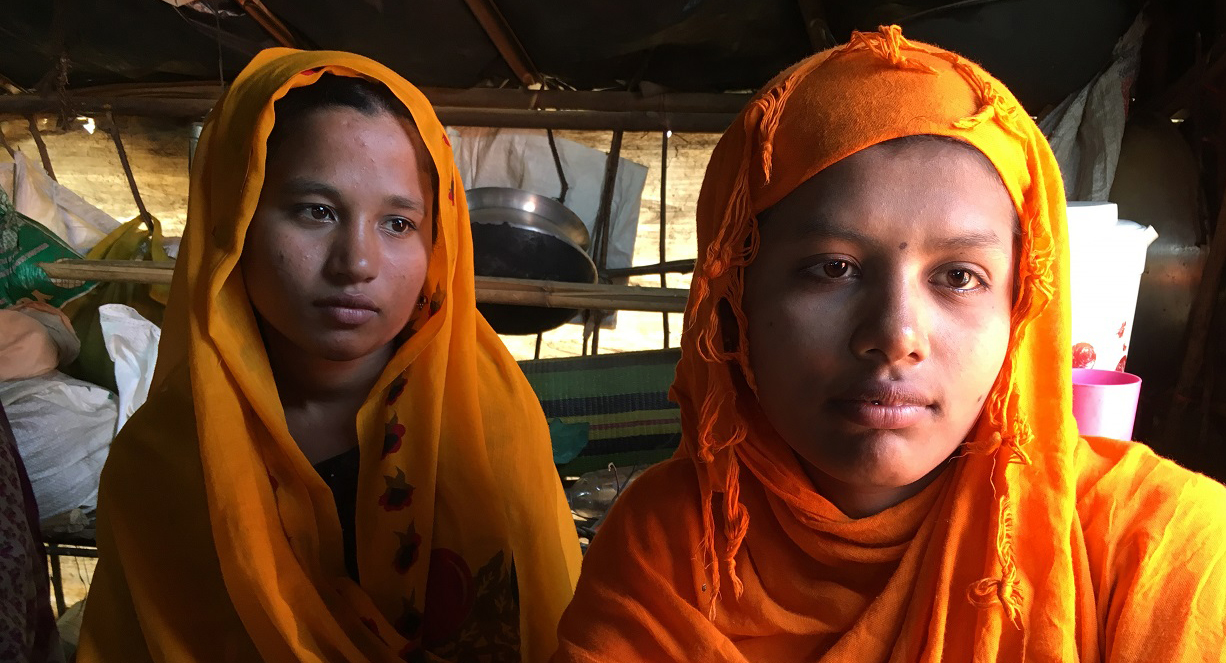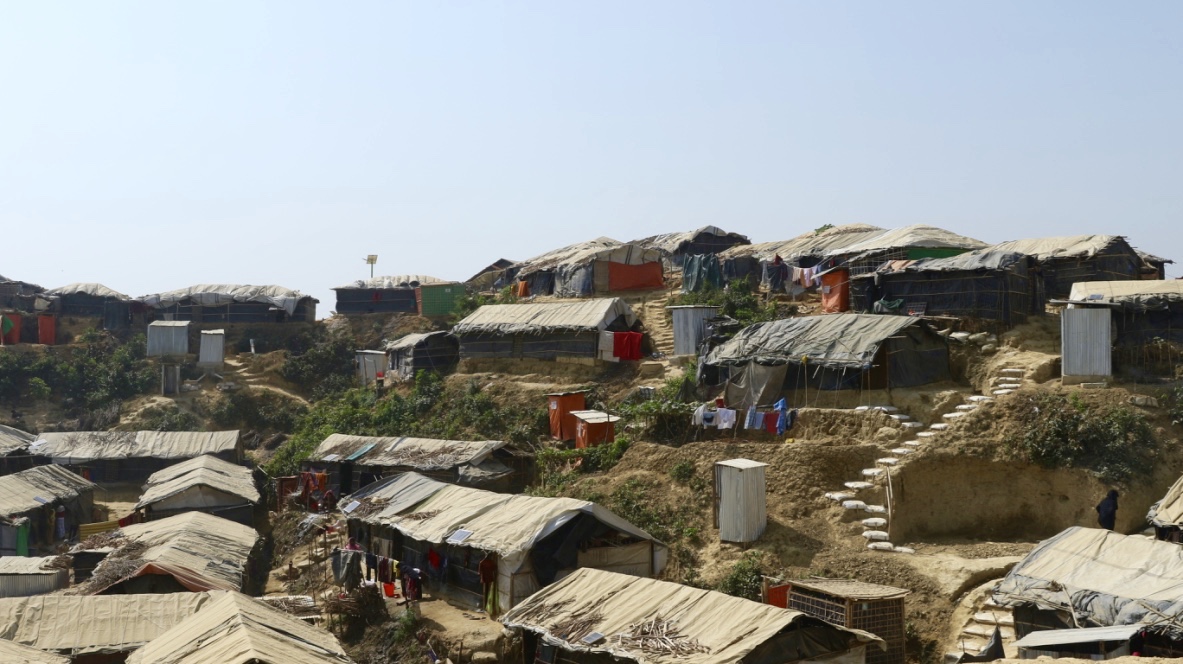Cyclone Preparedness Programme of Bangladesh


In late August 2017, widespread violence led to mass displacement of civilians and the suspension of most aid activities in the Rakhine State of Myanmar, resulting in thousands of people fleeing daily across the border into Bangladesh. As of March 2018, more than 750,000 people have fled from the violence in Rakhine State, Myanmar[1] and over 90% of them are living in an extended mega camp settlement which consists of 25 camps in the coastal district of Cox’s Bazar in Bangladesh. The speed and scale of the influx has led to a critical and complex humanitarian emergency, and the influx has created currently the world’s largest and most densely populated settlement of displaced persons. This complex humanitarian emergency has been further exacerbated by the possibility of cyclones, floods, and landslides affecting these communities in the coming months.
The scorching heat of the sun adds to the discomfort of the displaced families who are already living in difficult conditions. In addition to that the extended dry weather has increased the instability of the land where their shelters are currently placed.
The cyclone and monsoon season which starts in early May is a huge concern for everyone. Heavy rains combined with the instability of the land could trigger multiple disasters on already vulnerable communities living in make shift shelters built on muddy hillsides. There is an urgent need to ensure that preparedness actions, early warning systems and disaster response capacities are built with the displaced communities to mitigate any hazardous impacts such as mudslides and flooding.

In response to this urgent need, Cyclone Preparedness Programme (CPP) of Bangladesh, a joint initiative of the Government of Bangladesh and Bangladesh Red Crescent Society (BDRCS), with the support of American Red Cross and International Federation of Red Cross and Crescent Societies (IFRC) is taking action to train camp volunteers as CPP volunteers.
CPP is a world renowned program that has been functioning since 1972 and currently covers at risk areas within 13 coastal districts of Bangladesh with the support of over 55,000 CPP volunteers, who provide early warning messages to their communities in order they can take early action. For the first time, the Government of Bangladesh is including disaplaced persons from Myanmar in this program in order to ensure they are able to benefit from the existing cyclone preparedness measures. These camp resident CPP volunteers will be responsible for providing early warning messages to their own communities through their camp level CPP units through mega phones, a warning flag system and existing mechanisms such as mosque loud hailers in coordination with the mosque and community leaders in their camps.
Risks:
Cyclones – link to cyclones information and page
Floods – Link to floods information and page
Resources:
Building Capacties of People from Rakhine to Prepare for Disasters report
Articles:
Early warning saves lives as Cyclone Mora strikes Bangladesh and Sri Lanka
Bangladesh/Myanmar Border: Red Cross & Red Crescent Help Migrants Prep for Cyclones
